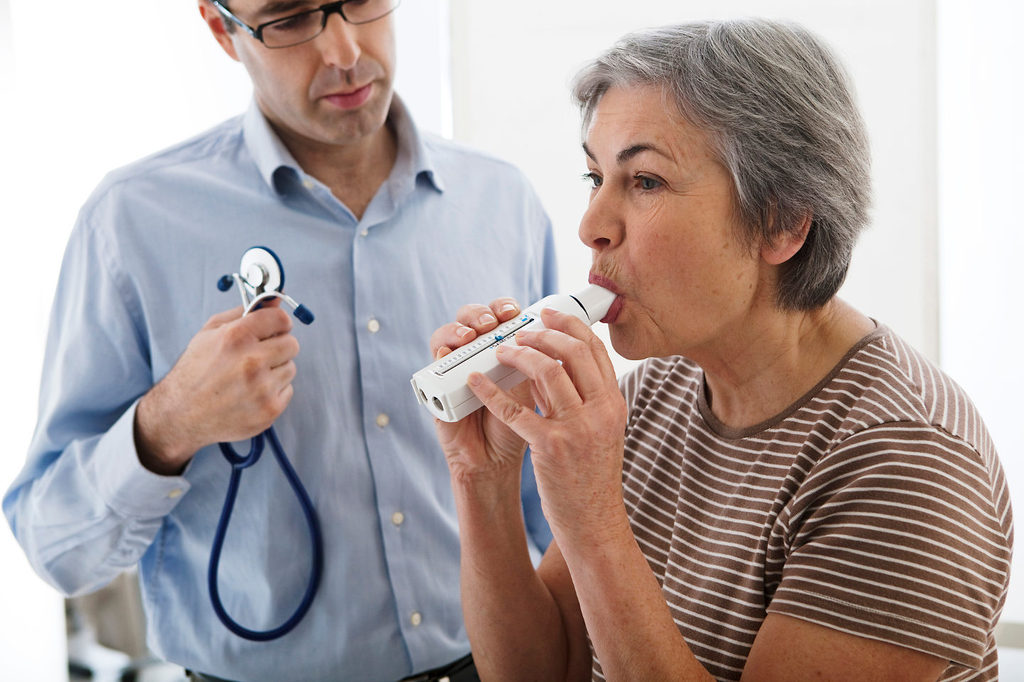Spirometry

This test is performed on your lungs to observe how you inhale and exhale. Spirometry is the most common, and generally the first lung function test done. It measures how quickly and how much a person can move air in and out of the lungs. It is a fairly simple test in which the individual will be asked to breathe into a mouthpiece and perform a series of breathing maneuvers so that the machine can record the results for a physician to evaluate. You may be asked to refrain from taking certain medications prior to a Spirometry test, since some medications can affect the test’s accuracy of the results.
The most common lung function values measured with a spirometry test are: forced expiratory flow 25% to 75%, forced expiratory volume (FEV), forced vital capacity (FVC), residual volume (RV), expiratory reserve volume (ERV), functional residual capacity (FRC), slow vital capacity (SVC), maximum voluntary ventilation (MVV), peak expiratory flow (PEF), and total lung capacity (TLC).




